We talk about it often, but now we figured it was time to write an article dedicated to discussing and pointing out the degeneration of gaming. Today, the video game industry is one afraid of innovation, and one that looks to milk consumers like cows. Most modern mainstream games are barely even a shell of the pioneers.
How and why did this happen? The truth is, there were multiple causes that led to the degeneration of the gaming industry. Continue on to the next page to find out why.
That was then
In order to understand the video game industry, one needs to understand its origins and follow its timeline. Without getting into an in-depth history lesson, video games were initially created for distraction; to kill time and offer a brief reprieve from boredom. Many games still exist for this same purpose, like virtually every mobile game and many casual games (many sidescrollers and shooters), but they are a bit more complex today than Pong.

Thought provoking.
Moving into the 1980s, more and more games were coming out to not only remedy boredom, but offer a challenge while doing so, thus creating some feeling of motivation in players. Conquering challenges is a rewarding thing, and by doing so players feel more confident and thus want more challenges to conquer. This is why many of the classic Super Mario games and Metroid games were presented in levels, and each following level was more challenging.
As for the kind of challenges these games involved, they challenged nothing more than reflexes and very basic problem solving. These games were welcoming for children.

Time your jumps and avoid more dangerous paths and you win. 1980s console gaming.
We also saw the birth of role-playing video games (RPGs) in the 1980s. They were heavily inspired by pen and paper RPGs like Dungeons & Dragons, in fact some of them were D&D games like Pool of Radiance (1988). They were a more complex, involving distraction. Most were designed to let the player really feel like a hero; stepping into a hero’s shoes, interacting with characters through dialogue, and defining your own character. They also provided challenge and thus reward, with challenges being a bit more complex as players had to understand the rule system driving the gameplay and make good decisions based on this knowledge.
But these old RPGs were still simple. They were also not very easy to get into, as there wasn’t any “gameplay” as we know it, just text and text choices. You had to be a hardcore pen and paper RPG fan to enjoy them, yet they didn’t offer nearly as much role-playing as a pen and paper RPG (not even today’s video games do).
Grognak and the Ruby Ruins, a 1980s style RPG featured in Fallout 4 as a mini game.
Along came the 1990s, in which video games began to seriously evolve. The 1990s is the decade in which video games first attempted to be an art form, the decade in which they first tried to become more than just games. It’s also the decade in which 3D video game graphics were born.
We will first mention the birth of competitive gaming in the 1990s, thanks to Quake. Competitive multiplayer shooters like this pit players against each other in a battle of reflexes, hand-eye coordination, and memory of the level design. It’s not a very complex thing, although competitive strategy games certainly are.
Planescape: Torment (1999) is easily the best example of a 1990s game that tried to transcend mere “game” status. Its writing quality is excellent, the story has many layers and is actually original, the character development is solid, and this results in quality literature not just by video game standards but any standard. In Planescape: Torment every single person you can have a conversation with is actually a character—well written, uniquely written, and memorable. They weren’t just bots put in the game world to give out quests, like they were in prior games and also in most of today’s games.
But it doesn’t stop there, it utilizes inherent benefits of the video game medium to bolster every aspect including its storytelling. It is an RPG so it emphasizes player interaction, it responds to what the player says and does within the game, and it does this to shape that excellent story around the player. It is your version of the story. This is why video games can be perhaps the most involving storytelling medium. The stories can be deep and well written, as Planescape shows, while also being visual and auditory, but unlike films they can also be highly interactive and thus personal. This lets video games evoke emotions like no other form of media.
Then there is the beautiful art design and soundtrack, giving life to the Planescape setting, and the tactical gameplay that’s both diverse and rewarding because of the challenge it provides. Planescape: Torment set out to do it all. It is an RPG come to life thanks to the video game format. Sure, pen and paper RPGs offer far more role-playing, but they don’t provide the visual aspect, soundtrack, or bits of voiced dialogue that Planescape does (and of course modern RPGs will generally provide entirely voiced dialogue and cinematic presentation), and good luck finding any RPG as well-written as Planescape: Torment.
In the 1990s we saw serious advancements in every facet of game design. We saw the first 3D games, even if only very few were able to use 3D visuals to provide immersion (Thief: The Dark Project and Silent Hill standing out the most). We saw the birth of cinematic presentation in games, with the use of soundtracks similar to movies, and also cutscenes.
3D immersive games like the aforementioned Thief: The Dark Project were created in order to let us do things we can’t do in real life. In this game, you can be a world class thief, and the non-linear, complex, and highly detailed level design, as well as the masterfully thought out gameplay mechanics, and also the artistic visual design and soundtrack, combine to deliver that feeling we keep mentioning: Immersion. Games like this let you take a break from life and do something else, or for immersive RPGs like Planescape: Torment, they let you take a break from life and live another life; a virtual fantasy life with an interesting story and characters.

Comparison of the level design between Thief 2 (2000) and the latest Thief game (2014). Not much needs to be said, although it’s amusing how the new one has designated “rope arrow spots” while the previous Thief games like Thief 2 let the player use rope arrows in any surface in which an arrow should penetrate.
Whereas Planescape: Torment utilizes more traditional storytelling methods but with added interactivity, Silent Hill takes a more unorthodox approach. It was the first game to rely heavily on visual symbolism and more subtle metaphors to get its point across, even if this method of storytelling was still a bit premature. Again it showed that video games could be considered art, and it also showed that video games can deliver uneasiness and even fear (even if none of us feel fear when playing it, many others do). There isn’t an emotion that video games can’t evoke.
Games like these, like Planescape: Torment, Fallout 2, Thief: The Dark Project, Silent Hill, and others, were all bold and visionary. They were made with ambition; the developers had a beautiful vision and through hard work and unimaginable creativity they made it into a reality. They were less concerned with selling a copy to everyone aged 8-80, and more focused on a specific target audience that was older and more intelligent than today’s general video game audience. This is why games like these were actually accepted and loved back then, but not anymore. This really highlights the differences between then and now, demonstrating the degeneration of gaming perfectly.
This is now
Don’t think that gaming as an art form and innovation died in the 1990s. It was still notable throughout the 2000s, and can even be found today occasionally, if you know where to look. There was a lot of experimentation on behalf of game studios in the 2000s, trying out all kinds of different ideas. You know the saying about throwing enough crap at the wall and something will eventually stick? Many game studios took this approach. It led to the demise of quite a few.
When did the degeneration of gaming truly begin? The starting point was actually one of the best years in gaming history, 2007. This devolution was not an overnight thing however, it was gradual and incremental. Call of Duty 4: Modern Warfare may have been the start. The developers and publishers behind this game were very observant and wise, as they were able to shape the future of the gaming industry forever. Call of Duty 4 was massively popular and its success convinced most other game studios that skimming down on single player content and favoring casual time-wasting multiplayer content, that wasn’t even competitive like older shooters, was the way to go. This casual multiplayer appeals to children and those with short attention spans very well; it requires minimal thought and input, and it is designed to give everyone a nearly fair chance of winning.

But the real problem was the success of Call of Duty 4, and the success of similar watered down games that followed. These types of games most likely would not have succeeded in the 1990s or even earlier 2000s, when casual gaming was less popular on PC and even older consoles like Nintendo 64 and PlayStation. Call of Duty 4 and today’s equivalents like the newer games from the same franchise, Battlefield 4, Star Wars: Battlefront, and others, would likely have been thought of as too casual, too mindless, and not rewarding enough to be played. Compare Battlefield 4 to Battlefield 2, or Star Wars: Battlefront to Star Wars: Battlefront 2, and the degeneration is readily apparent. The newer titles have a small fraction of the content and are designed to remove all required thought, teamwork, coordination, and even any sense of distinct styling, yet they’re still lapped up right away.
Watch these two videos below. Can you think of another multiplayer shooter remotely comparable in complexity, required teamwork, and required thought? Actually we can, but only one other, and we don’t expect others to be able to since it’s not very well known. Oh yeah, and this game came with nearly 20 maps right out of the box.
Furthermore, modern games are released in a buggier, incomplete stage, truly a beta or alpha build depending on the game in question. They definitely are not deserving of being released in that form, look at Battlefield 4 and Batman: Arkham Knight (the latter on PC). At release they crashed and ran terribly, the former would drop connection often, they should have been deemed unplayable but standards are far too low now.
What about the fact that most single player action games only require button mashing and success at quick time events (QTEs) in order to succeed? The absence of challenge and creativity is disturbing. Watch this video of a proper action game, Dark Messiah: Of Might and Magic. It is from 2006 and it is far more advanced than any similar action game from today, not just mechanically but even in terms of physics.
Not that we’re saying all modern action games are dumbed down casualized button mashers. Here is the remake of Shadow Warrior from 2013, another action game with good mechanics.
And gaming as an art form? Modern mainstream games make the notion seem like a farce. Even popular single player titles like The Last of Us just try to mimic films opposed to taking advantage of inherent benefits of video gaming like interactivity, exploration, and more in-depth gameplay. Most single player games like Far Cry, Tomb Raider, Batman, and far more (we of course speak of the modern iterations of these franchises) are not made with a shred of artistic vision, or any effort in storytelling or creativity. The gameplay is dumbed down just like we mentioned above, so that nobody is challenged because these days the whole “challenge/reward” system we discussed earlier is put aside in favor of “everyone including children and the elderly can beat this game!”
The reason as to why most games today don’t try to be art, or why they don’t try to transcend mere “game” status, is because gamers don’t want this. The vast majority don’t want it. Game studios know this and cater to these simple minded gamers who are overwhelmed by choice and need their hand held throughout the game. Now we might seem cynical complaining about gamers being satisfied with mere games (a word that is defined as amusement, pastimes, or a competitive activity), but we prefer our games to provide an intellectual aspect, we realize games can be artistic and we relish this when we can. This is why SOMA is one of my personal favorite games in recent years. We want games to be more than games, and so do some others, but not enough. We don’t even demand every game to be a work of art and a literary triumph. But we definitely need more of them. We also love video games that are games, but they need to be challenging and complex like XCOM 2 and its predecessor and also Rainbow Six 3, or amazingly fluid and skill-based like Dark Messiah: Of Might and Magic and Shadow Warrior, or demanding of teamwork and tactics in a multiplayer environment like Natural Selection 2, Crysis Wars, ArmA 3, and No More Room in Hell. What we don’t want are mindless, time-wasting, rushed casual games which dominate the industry today. We want games with actual effort put into them.
But unfortunately games like SOMA, Planescape: Torment, Neverwinter Nights 2: Mask of the Betrayer, Fallout 2, Silent Hill 2, and many of the other great games we praise are not only misunderstood by most, but they completely overwhelm most. They are too intellectual for those without intellect, they are too time consuming as gamers (and people in general below the age of 40) now lack the attention span, and their great features, like how much Fallout 2’s dialogue changes based on the player’s stats and character build, go completely unnoticed because gamers don’t have the attention span or thinking skills to even realize what they’re playing.
So the real problem is, what happened to gamers? Gaming degenerated because gamers degenerated. But it’s not just gamers, it’s people in general. Individual thinkers are rare and the herd mindset has become more prominent than ever. Everyone simply follows hype trains, and everyone simply wants to fit in, so individual thinking is rare and as a result games aren’t analyzed. Because if you analyze most games today, you will see the truth in everything we’ve said.
Even game reviews from the biggest sites lack a proper, in-depth analysis, although part of this is due to dealings with publishers (but this can’t explain the inability of sites like IGN and PCGamer to avoid spreading debunked rumors as facts, or getting games’ titles and release dates wrong). But because these people can’t analyze or think for themselves, they get milked like cows (rehashed games or the selling of incomplete buggy games) and treated like babies (games that hold your hand the entire way, games that don’t encourage creativity and aren’t made with any either). For evidence of people (gamers) being unable to analyze the games that they’re planning, all you need to do is look at forum threads about specific game recommendations such as this one. In that thread, the thread starter asks for recommendations for cyberpunk-themed games with government conspiracy undertones, just like Deus Ex. Yet the people in that thread recommend Devil May Cry 5, Dead Space, Aliens vs Predator, Mirror’s Edge, Metro 2033 and Last Light, Fallout 4, and a plethora of other games that are nothing like he describes. It is an unbelievable lack of intelligence that plagues the gaming community. This really shows how gamers can’t analyze what they’re playing, how they are unable to think, and it’s because of this inability to think and analyze that gamers are taken advantage of. But you know what they say, you can’t fix stupid, which is why it’s hard to be optimistic.

We’re actually just complaining about one result (out of many) of a serious issue in humanity today. We live in a world in which people on the internet are starting to believe Earth is flat because a rapper said so. We live in a world in which the whole iPhone Wave thing happened, and we live in a world in which obvious racist Donald Trump is a serious candidate for President of the United States. Getting back to gaming, we also live in a world in which the most linear games like The Witcher 2 are called open world, in which cooperative multiplayer games are unable to be distinguished from versus multiplayer games, in which female protagonists are desired because that’s the closest many gamers will ever get to a woman, in which achievements and trophies are considered lasting appeal instead of actual unique and abundance of content, in which any shooter game is labeled “FPS” regardless of the actual point of view, and in which any first-person game without combat is called a “walking simulator” because gamers don’t have the attention span to do anything other than kill things in a game. We live in a world in which Infinity Engine (the same engine used by the Baldur’s Gate games, Icewind Dale games, and Planescape: Torment) is desired and is thus making a return for the next Baldur’s Gate game by Overhaul Games. Think about that; it’s 2016, and today’s gamers are brainwashed into thinking a 1990s engine is needed to make a great RPG. The fact that a 1990s game engine is being used for a 2017 game is totally unacceptable and head-scratching. So we live in a world in which some groups of gamers are actively against technological advancement because they are incapable of rational and individual thinking.
We can’t help but wonder about the future. Recently I talked to a gamer who actually has a mind of his own, but what was even more surprising was that he had high hopes for the future of gaming. However, when looking at the path the gaming industry has been on, it’s hard to stay positive. The Witcher 3 is probably the hottest new game in the industry right now, and by ‘new’ we refer to a game being released within the past year and being either a new IP or in this case belonging to a franchise that never had this kind of attention before. The Witcher 3 is a strange mix of the dumbed down type we complain about (serious lack of role-playing while lying to and fooling gamers into believing otherwise, extremely dulled hack and slash gameplay mechanics and only one playstyle) with some hints of greatness (good artistic level design, good writing quality for a video game). Because it’s such a mixed bag however, it does not give us any hope, rather it makes us fear the imminent death of mainstream RPGs, and we really love RPGs.
But you can make a difference. Remember that all consumers vote with their wallets. Gamers need to stop preordering and ordering games they know will be broken beforehand. That, along with a tiny minority of games that do show effort, creativity, and attempt to please the intellectual and individual, are all we can hope for.
Before we let you go, have a look at the video comparisons below, demonstrating this degradation. Also read this one.
And also these screenshots.










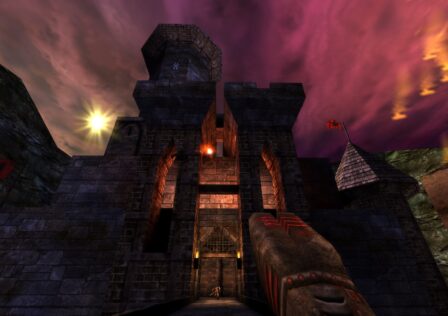
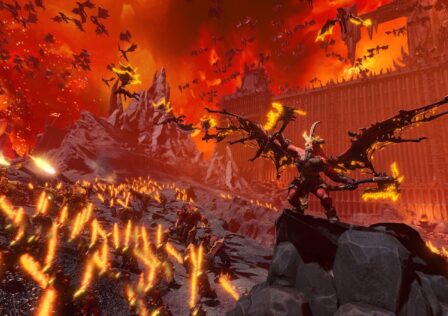
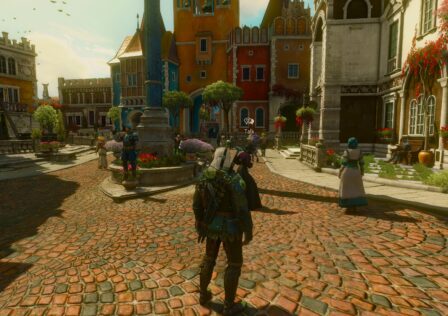


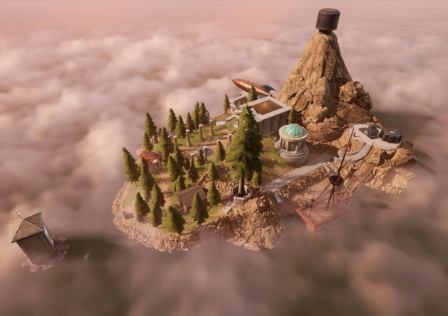
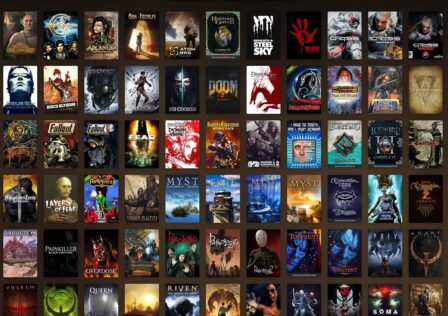

[…] seems too good to be true. This isn’t entirely because of our lowered standards, which are the result of industry standards lowering greatly since those times. Neverwinter Nights 2 was the culmination of traditional video game RPGs. Everything was building […]
[…] than most other genres. Time has really taken its toll on it. We talked about it to some degree in this article. But we felt this specific subject deserves its own article because so much has been taken away […]